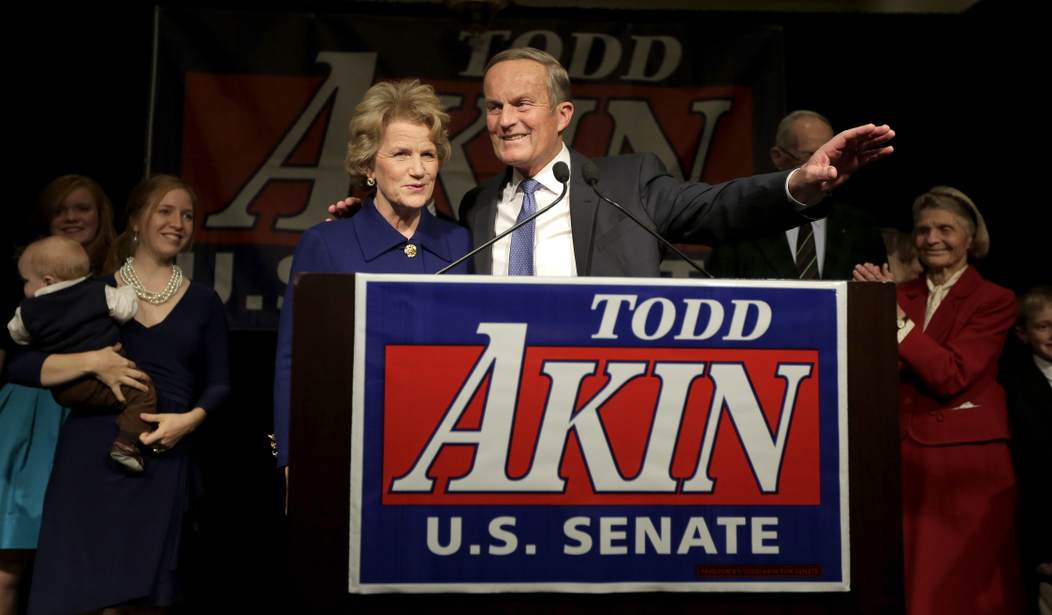The Hill calls the results of Democratic meddling in Republican primaries last night “uneven.” Unless Democrats really worried that the GOP could win the gubernatorial seat in deep-blue Illinois, it looks more like an expensive flop. Republican voters largely chose the less extremist candidate in these races, and Democrats burned through millions of dollars that their own candidates might need later:
That strategy ultimately paid off in the GOP primary for Illinois governor, where former Trump’s endorsed candidate, state Sen. Darren Bailey, notched a win over a more moderate Republican, former Aurora Mayor Richard Irvin.
Still, it wasn’t an across-the-board success for Democrats.
In Colorado, Republican Heidi Ganahl beat out Greg Lopez in the GOP gubernatorial primary despite Democratic-aligned groups spending big to tout Lopez’s conservative credentials.
The same is true in the Colorado GOP Senate primary, where Democrats were hoping to boost conservative state Rep. Ron Hanks over businessman Joe O’Dea, a more moderate Republican. O’Dea ultimately clinched the nomination to take on Sen. Michael Bennet (D-Colo.).
Of course, Democrats still have the advantage in both the Colorado Senate and gubernatorial race. But the failed efforts to lift up hardline conservatives in the primaries show the limits of money in politics.
It also shows the limits of what was clearly a Todd Akin strategy. Remember that? An already unpopular Claire McCaskill managed to eke out another Senate term by using a large money advantage to lift up Akin as her general-election challenger, and Akin ended up self-destructing in the campaign over abortion and rape. McCaskill later lost to Josh Hawley in her bid for a third term anyway, so even the success for McCaskill and Democrats was limited, and arguably made a hardline conservative position more legit in Missouri in the long run.
In last night’s contests, at least, the strategy was a bust. It worked in Illinois, but the likelihood of a Republican win in a statewide general election in Illinois was already pretty low. Granted, it might be lower with Bailey as the nominee, but how much concern did Democrats have over their standing in Illinois in the first place? It might make some sense to spend heavy in the competing primary of a competitive state, but … Illinois? What’s next, an Akinizer project in California?
The Akinizer Project was expensive in Colorado, and left Democrats not just poorer in cash but also in the difficult position of explaining why they’re promoting so-called extremists in the first place:
The strategy is most prominent with the nascent organization Democratic Colorado, which has spent more than $4 million in TV advertising across the state related to the GOP Senate primary. The new super PAC filed registration with the Federal Election Commission on June 2 and reserved more than $1.5 million last week to amplify the conservative credentials of right-wing, election-denying state Rep. Ron Hanks.
Hanks, who also takes a staunchly conservative stance on total abortion bans and claimed to have marched to the U.S. Capitol on Jan. 6, 2021, without entering the building, lags millions of dollars in fundraising behind the more moderate Joe O’Dea, a businessman. …
The tactics did not go unnoticed by O’Dea’s campaign or the Republican Party at large. In a statement, O’Dea accused Democrats of “propping up Ron Hanks in a desperate attempt to save Senator Michael Bennet.” His campaign filed a federal election complaint, requesting that a federal judge block the mailers.
On June 20, the National Republican Senatorial Committee also filed an FEC complaint about what they called Democrats’ “coordinated effort to hurt Republican candidate Joe O’Dea.”
The Democratic Governors Association tried the same thing with Greg Lopez, attempting to float him as the conservative choice against Heidi Ganahl. That flopped there as well, leaving the DGA in the curious position of explaining why they focused on the wrong candidate and largely ignored the winner with its $1.5 million late contributions to their super-PAC running these strategies.
That’s a lot of money to burn in a strategic flop. Some Democrats may well wonder who chose that strategy, and why, if they come up short in Colorado’s general election in November. And again, the Democrats will still have to explain their promotion of so-called extremists and election deniers while simultaneously screaming about their danger to our democracy. There is a lot of potential backfire risk for the singular success of keeping Illinois blue. Unless Bailey actually wins, in which case the DGA, the Pritzkers, and Democrats in general will have a lot more explaining to do.








Join the conversation as a VIP Member